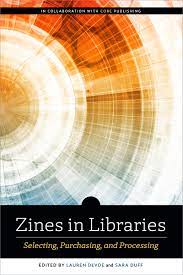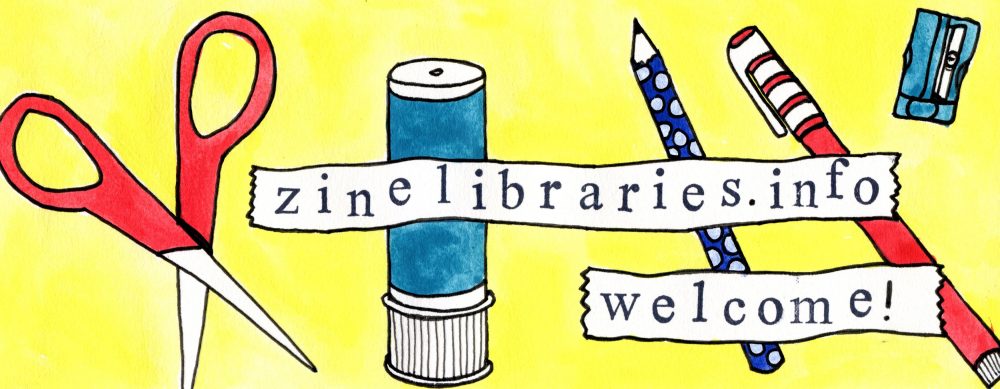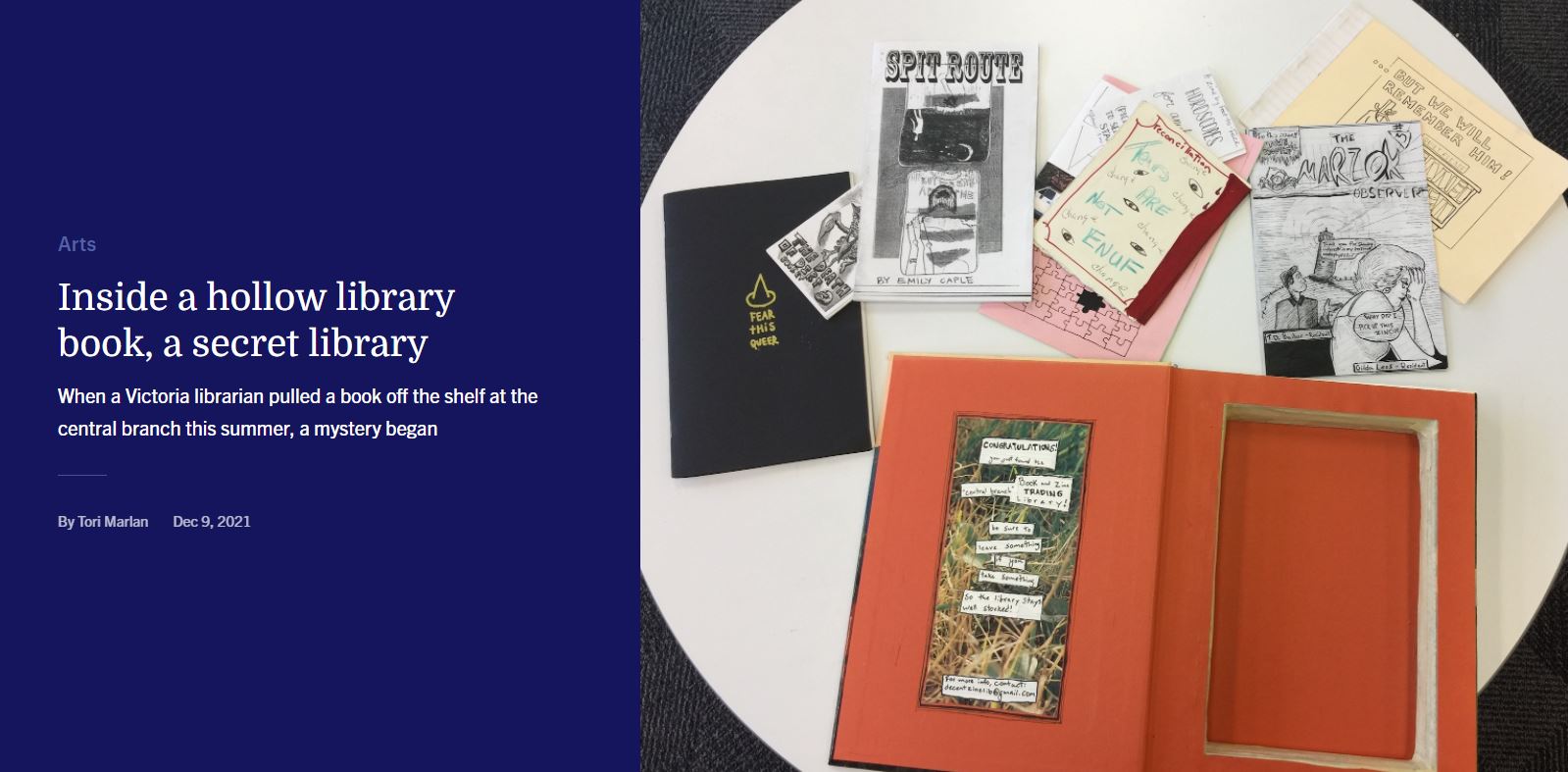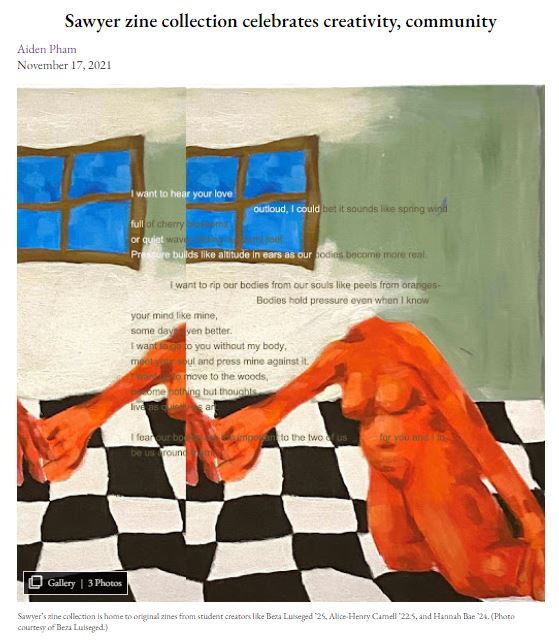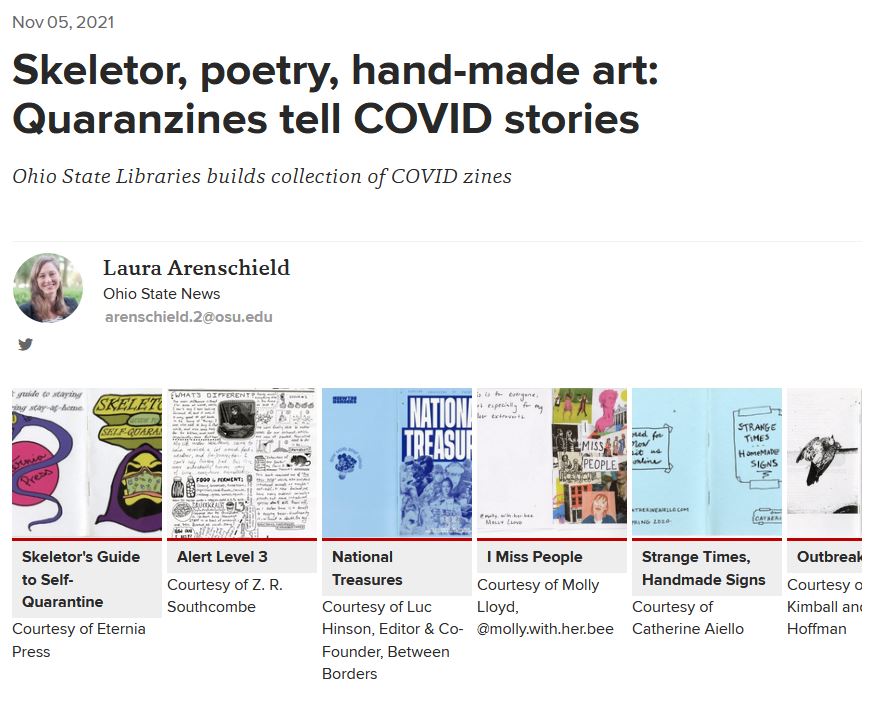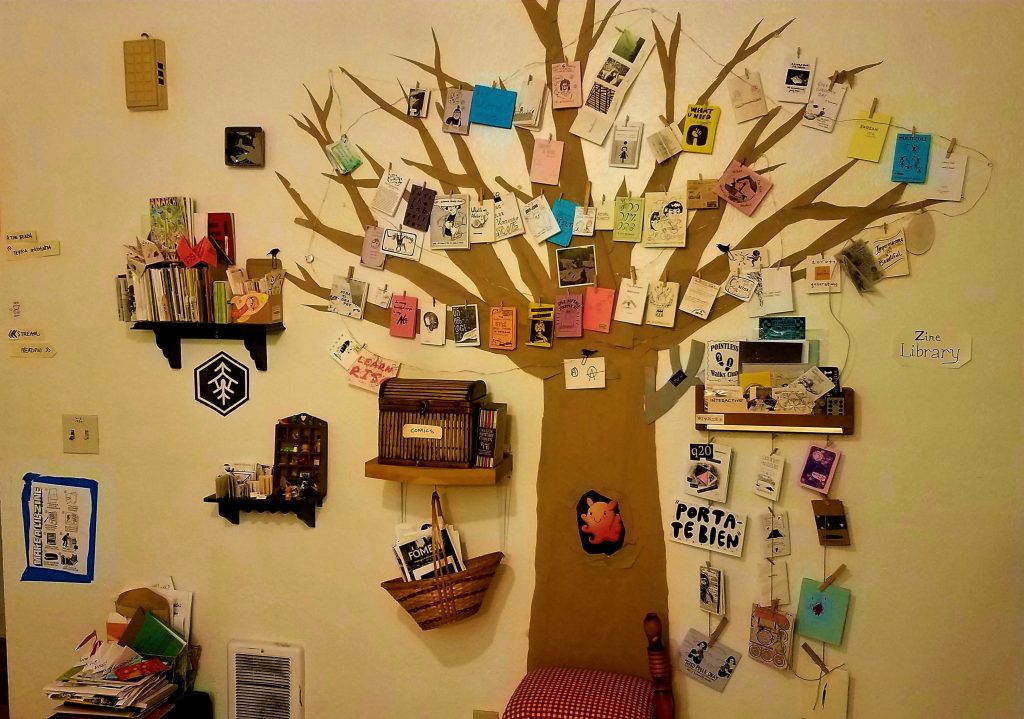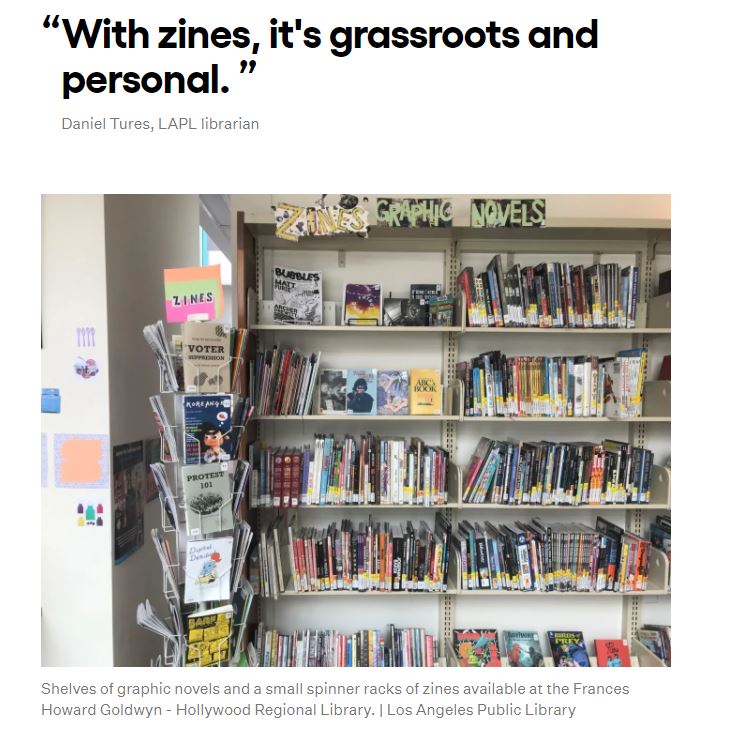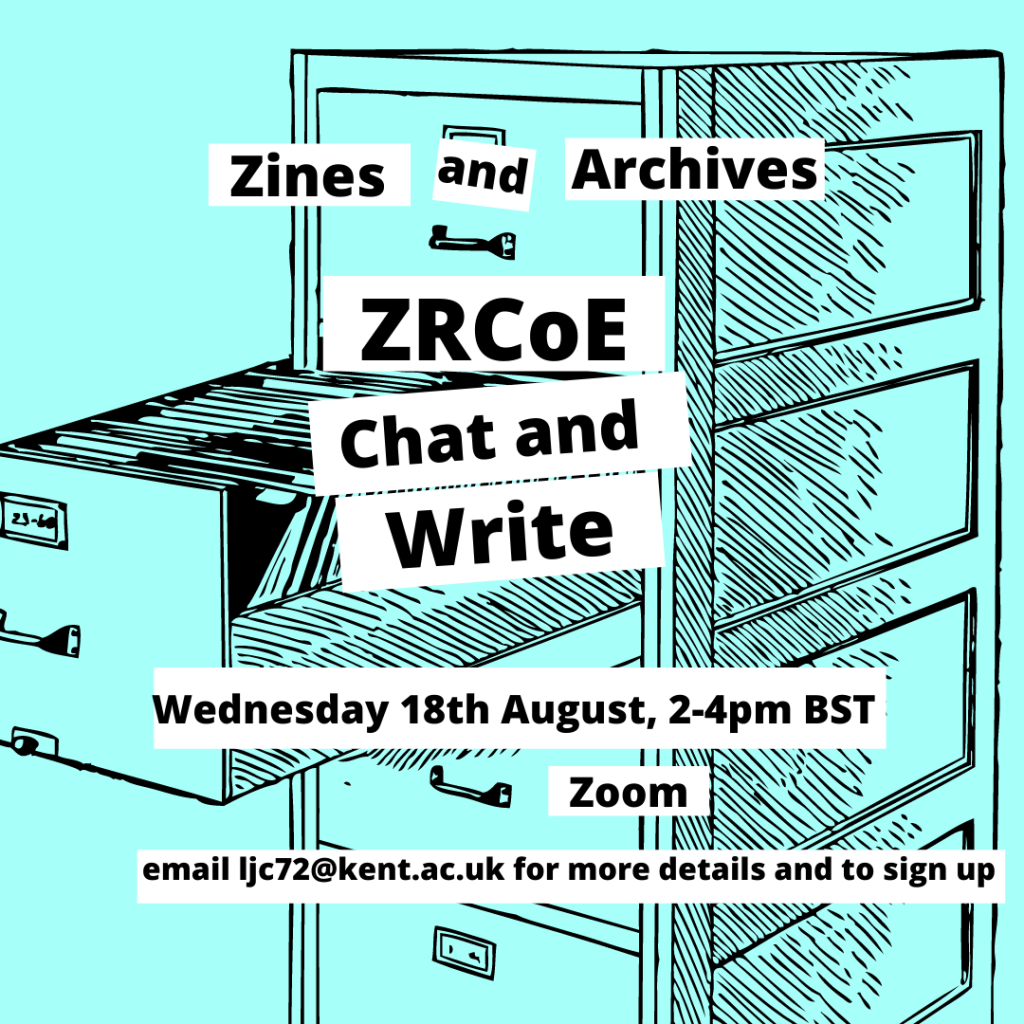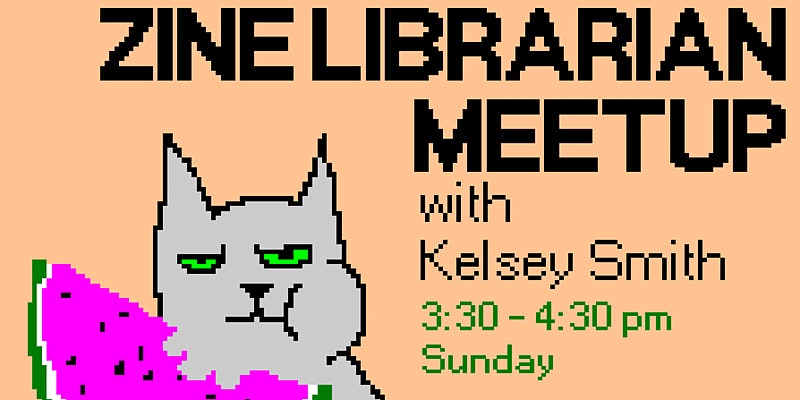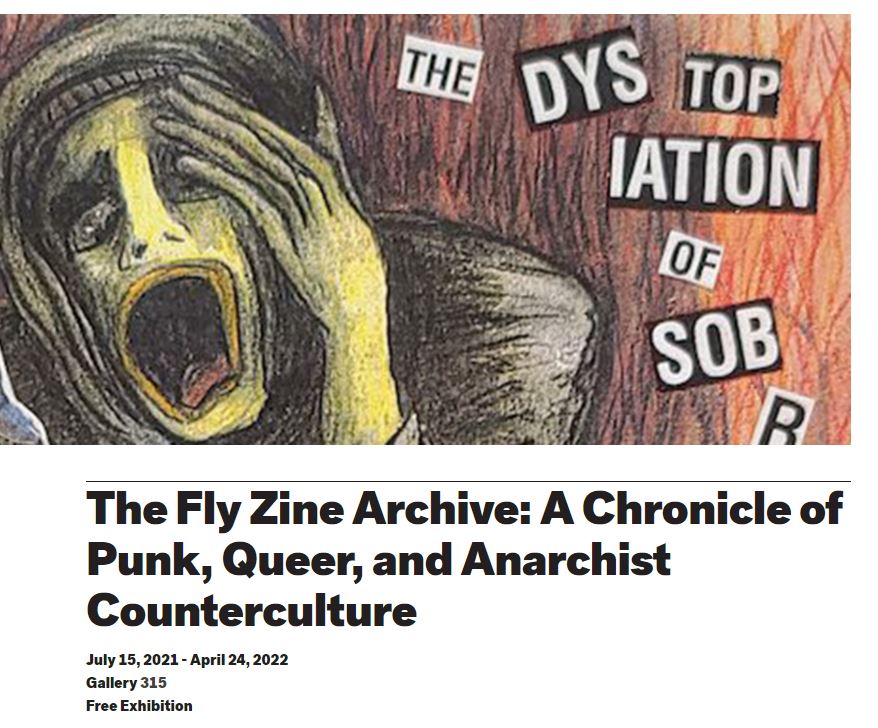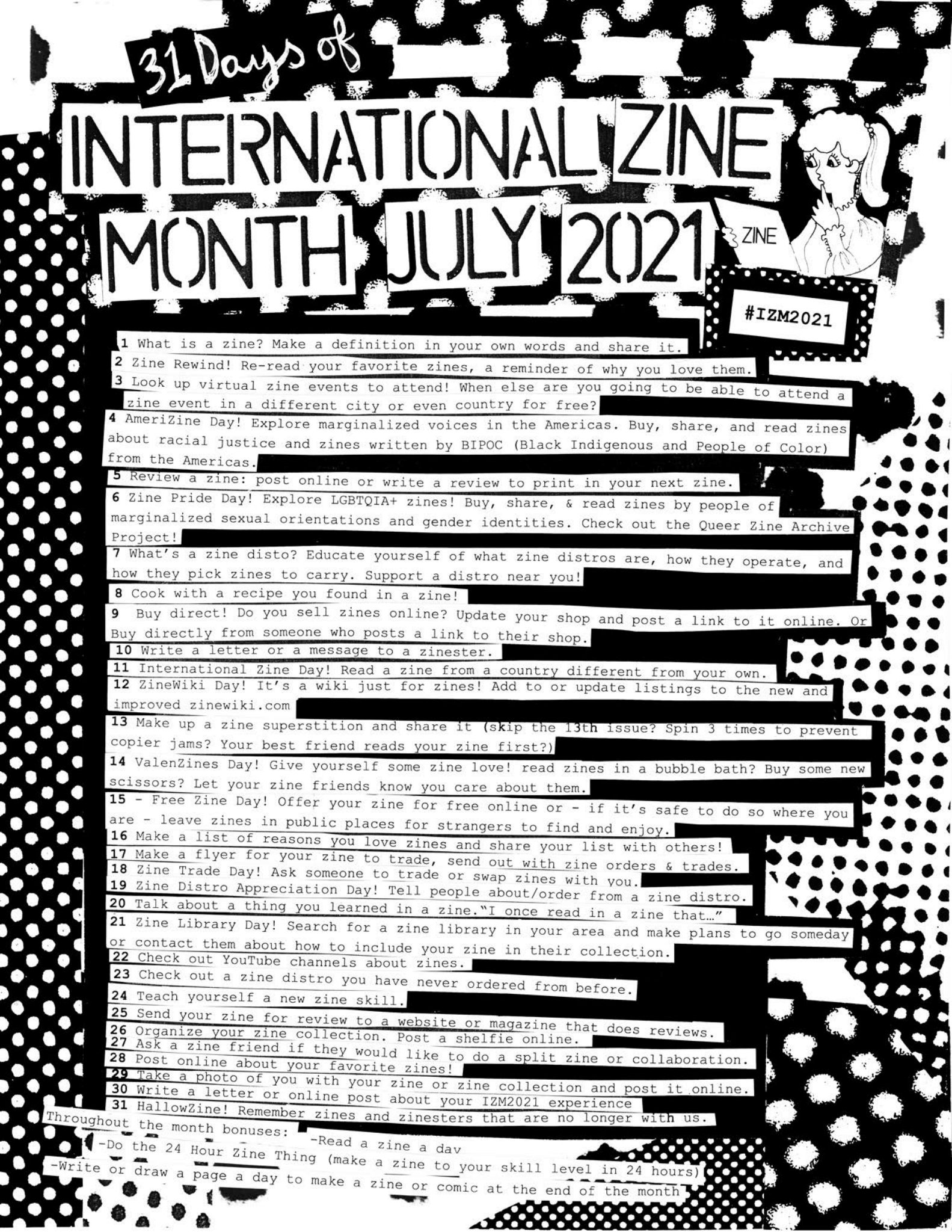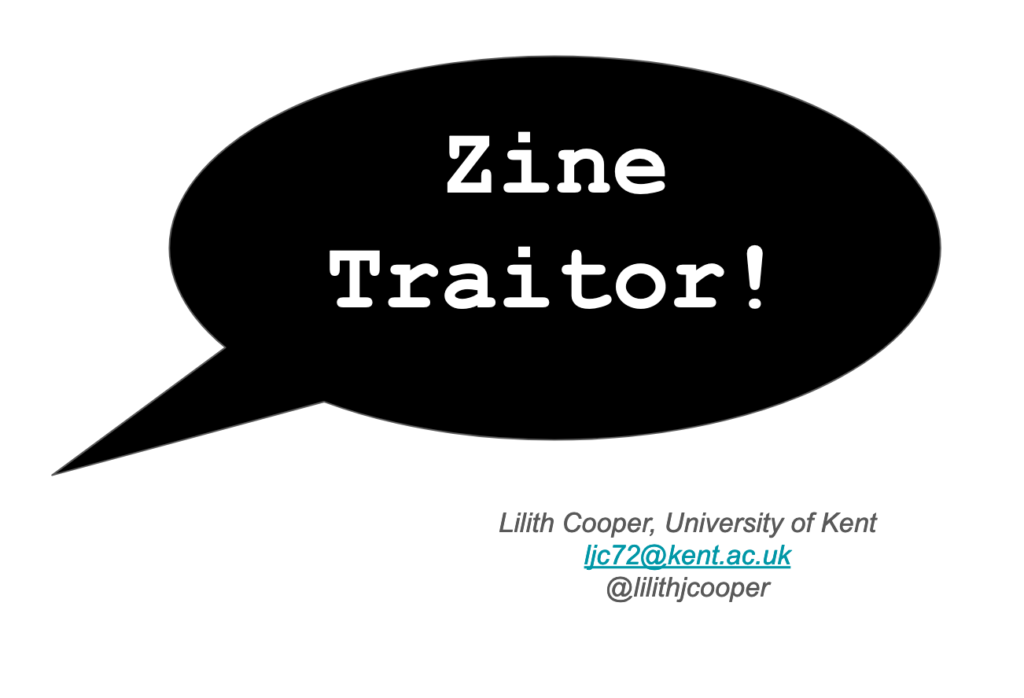A new book on zines in libraries, edited by Lauren DeVoe and Sara Duff, was published this month by ALA Editions. “Zines in Libraries: Selecting, Purchasing, and Processing” includes chapters on circulation, preservation, acquisitions, collection development, and more, including information specifically about zines in school libraries and the Zine Union Catalog. Some chapters have open access copies available; we’re collecting links to institutional repositories.